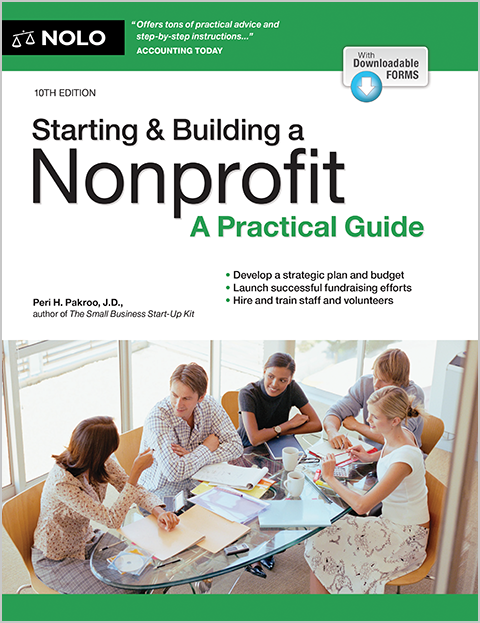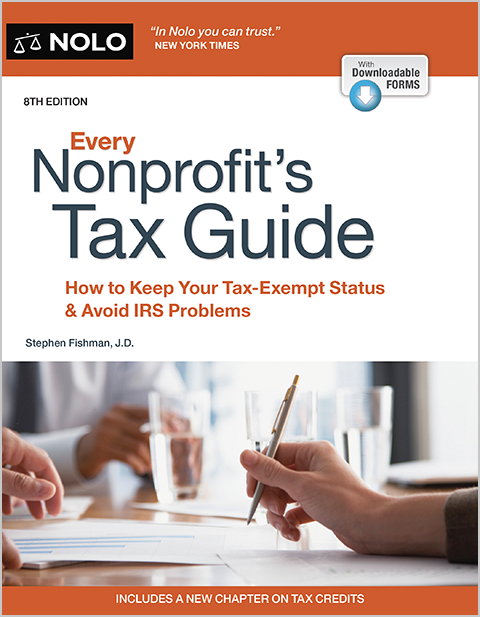Not sure whether to incorporate your nonprofit? Here's some information to help you decide.
If you're involved in a fledgling nonprofit organization, you and the other folks active in the group have probably wondered whether or not you should incorporate. Becoming a nonprofit corporation requires some paperwork, but for many groups, the benefits of nonprofit status outweigh the complications. Here are five circumstances that may make it worth your while to incorporate.
- Your Association Makes a Profit From Its Activities
- You Want to Apply for Public or Private Grant Money
- You Want to Solicit Tax-Deductible Contributions
- You Want Protection From Personal Liability for the Group's Activities
- Your Advocacy Efforts Might Provoke Legal Quarrels
- Additional Benefits of Organizing a Nonprofit
Your Association Makes a Profit From Its Activities
If your group will make a profit from its activities, becoming a nonprofit corporation can yield a great benefit: As long as the money you make is related to your charitable activities, your nonprofit corporation won't pay income tax on it.
For more information on whether income is "related" to your group's activities, and thus not taxable, see Tax Concerns When Your Nonprofit Corporation Earns Money.
You Want to Apply for Public or Private Grant Money
Without tax-exempt status, your group is unlikely to qualify for many public and private grants. While you can form a nonprofit, tax-exempt association rather than a corporation, qualifying for a tax exemption as an association is harder -- it requires preparing and adopting a complicated set of organizational papers and operating rules. Further, it's generally easier to get the IRS to approve a tax exemption for a nonprofit corporation.
You Want to Solicit Tax-Deductible Contributions
If your organization becomes a tax-exempt nonprofit corporation, donors can deduct their gifts to your group on their federal and state tax income returns.
You Want Protection From Personal Liability for the Group's Activities
If your group finds itself the target of a lawsuit, incorporation can provide welcome peace of mind. Nonprofit corporations can be sued -- but their members and directors are generally protected from personal liability, meaning that their own money, houses, cars, or other property isn't at risk. That's not true of an unincorporated association.
Your Advocacy Efforts Might Provoke Legal Quarrels
Although nonprofits may engage only in very limited political advocacy (unless they elect to follow special federal lobbying rules), advocacy efforts may occasionally draw a nonprofit into an unwanted lawsuit. Incorporating can support directors and officers in defending the lawsuits and protect them from personal liability.
Additional Benefits of Organizing a Nonprofit
Although these aren't the main reasons people form nonprofit corporations, nonprofits can take advantage of other benefits, including:
- Special postage rates. Nonprofits can apply for and receive a mailing permit that gives them a special reduced nonprofit rate for mailings. This is especially helpful for organizations that will do a lot of solicitation by mail.
- Property tax exemptions. In addition to an exemption from income taxes, nonprofits are usually exempt from paying property taxes on real estate and other property. Contact your county assessor's office for more information on this property tax exemption, which is called a "welfare exemption."
To learn more about forming a nonprofit corporation, see the article How to Form a 501(c)(3) Nonprofit Corporation. For detailed information, see the book How to Form a Nonprofit Corporation, by Anthony Mancuso (Nolo).
Ready to start your Nonprofit Corporation?
- Your Association Makes a Profit From Its Activities
- You Want to Apply for Public or Private Grant Money
- You Want to Solicit Tax-Deductible Contributions
- You Want Protection From Personal Liability for the Group's Activities
- Your Advocacy Efforts Might Provoke Legal Quarrels
- Additional Benefits of Organizing a Nonprofit



